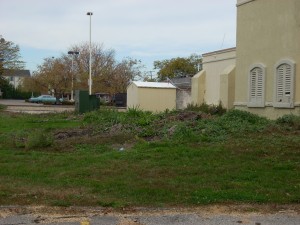In this post, I link to a brief news item that discusses the most expensive cities in the world to live. knirirr was kind enough to leave a comment.
Interesting I was surprised to see London so low down the list.
knirirr makes his living as an academic. He works at a prestigious college in the United Kingdom. Even adjusted for different currencies, his pay lags about 25% behind what a comparable American prole slaving in the Ivory Tower would earn. And professor salaries in the UK are considered to be pretty posh compared to most of the world.
If anyone is wondering as to the reason for this disparity, it is because the US government has guaranteed loans that college students take out to finance their educations. With all that money coming in, centers of higher learning have applied themselves to spending the wealth. Hence, academics in America earn significantly more than their foreign cousins.
There is a lot more to the issue, enough to warrant a few other posts on the subject. But the main reason I mention it here is that knirirr’s comment got me to thinking about disparity of income.
How would those cities on the list fare if one factored in the per capita GDP of the countries where they are located? According to this list, a few revisions would have to be made.
Perhaps surprisingly, cities in the top spots would still be even more expensive places to live if one considers average per capita income.
According to the article, the cost of living in Zurich is 176% compared to New York City. This means Zurich is the most expensive city to call home in terms of money spent to live there. But since the average wage of the Swiss people is five to ten percent less than citizens of the United States, the cash shelled out for rent and food would take a greater percentage of their pay checks.
The same goes for the number two city. It might cost 166% to live in Tokyo, Japan than it would to dwell in New York, but the average Japanese citizen earns about 72% of the wage that the average American takes home. If GDP was included in the calculations, then Tokyo would climb above Zurich so far as relative expense was concerned.
The real shakeup, of course, comes at the very bottom of the list. Karachi, Pakistan is supposed to be the least expensive place to live as one could make a home for only 46% of the cost to live in New York. But considering that the average yearly wage in Pakistan is about 5% of the average wage earned in the US, and suddenly it is obvious that the vast majority of Pakistanis can only think of living there to be an impossible dream.
(Cross posted at Hell in a Handbasket.)





